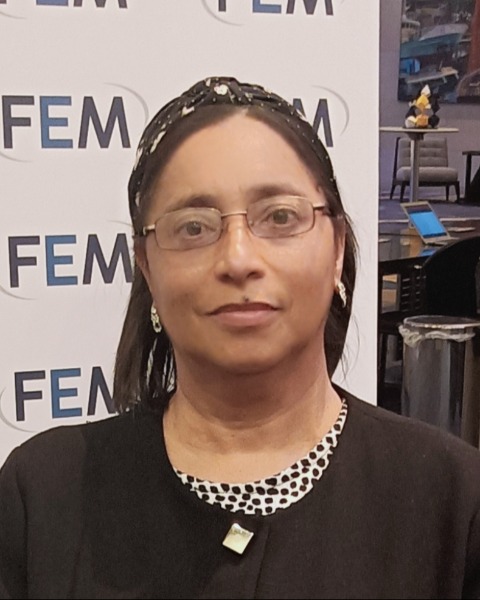Internal Evaluation
Stories of Possibilities
-

Norma Kok, Masters Degree in Public Health
Monitoring, Evaluation, Research and Learning Lead
Citizen Leader Lab, Western Cape, South Africa -
DM
Diemo Masuko, n/a
Monitoring and Evaluation Officer
Citizen Leader Lab, South Africa -
TD
Thandokazi Dlongwana, n/a
Monitoring and Evaluation and Systems Officer
Citizen Leader Lab, South Africa
Presenter(s)
Author(s)
Location: White River Ballroom B
Abstract Information: Introduction In monitoring and evaluation (M&E), we rely on quantitative and qualitative metrics to draft M&E reports, which are usually technical and theoretical. We are often not hearing the voices of our participants and communities about their own experiences, successes and challenges on various projects. Citizen Leader Lab, a non-profit organisation based in South Africa, uses storytelling to provide insights into programme processes, outcomes and impact. Storytelling is a powerful way to obtain information from participants on their experiences and perspectives regarding outcomes and the impact of our programme. Partners for Possibility, the flagship programme of Citizen Leader Lab, provides transformational leadership development and support to school principals. Members of the business community are invited to partner with a school principal over a 12-month period and are supported through the experience of applying new skills and knowledge in their individual schools. Partnerships (dyads consisting of a school principal and a business leader) are grouped into clusters of 8-10 schools to allow for peer and co-learning. Each cluster is supported by an experienced Learning Process Facilitator (a trained and experienced coach), who facilitates regular meetings in which both partners share knowledge, experiences and good practices. Methodology Citizen Leader Lab values the principle of ‘connection before content’, and therefore connection is established with participants and communities before developing stories. Different methodologies are used to prompt stories. These methods include open-ended questions in interviews and surveys conducted by the M&E team, observations by the Learning Process Facilitator (LPF) throughout the programme, as well as partnership closing interviews (i.e. three-way conversations between the LPFs and the partnerships). Interviews are normally done in a conversational manner to make the participants feel comfortable and relaxed, and ‘provocative’ questions and prompts are used to elicit more information. Data such as participants` experiences of the programme, new skills and knowledge gained, development projects implemented at the schools and/or organisations, and contextual information are gathered. This is done to enhance the quality of our programme evaluation and the impact of the story. Data analysis reveals key changes, individual perspectives, intended and unintended outcomes (both positive and negative) and the programme’s overall impact. This information is then written up in the form of stories. The stories are shared in our funder reports and published in newspapers, blogs, social media, our Alumni Network platform and WhatsApp groups to help us better connect with our audiences, including funders, staff members, beneficiaries and members of the public. Conclusion Citizen Leader Lab uses people-centred stories to communicate the impact of our programme as well as to create a sense of hope and possibility to all our school principals leading schools in difficult and complex environments.
Relevance Statement: Citizen Leader Lab facilitates the Partners for Possibility (PfP) programme to provide leadership development and support to school principals serving under-resourced communities in South Africa. The PfP programme creates cross-sectoral collaboration between school principals and business leaders over a 12-month period to strengthen connection and partnership across racial and cultural boundaries, and to develop leaders who can catalyse positive change in their communities and in the broader society. Having come across stories from organisations that do similar work to our own, Citizen Leader Lab adopted the method of storytelling as part of our evaluation practices because our organisation deeply values the principle of ‘connection before content’. Storytelling allows us to achieve this connection with our readers. The African continent has a rich history of storytelling. As such, South Africans are more receptive to stories because they are less technical, theoretical and jargon-ridden. As a people-centred organisation operating within the African context, the stories that the organisation tells about our PfP leaders are often relational and emotive, allowing readers to see themselves in the people we serve. The stories from Citizen Leader Lab are generally short, easy to understand, entertaining, evoke visual images of the data being presented and are able to reach a much broader audience compared to traditional M&E reporting. Through storytelling, we are able to highlight the programme’s successes and challenges, share lessons learned and contextualise the needs, struggles and achievements of each PfP partnership. South Africa is commonly referred to as the ‘rainbow nation’ because it is home to various ethnic, racial and religious groups. Storytelling helps to perfectly illustrate the cross-sectoral and boundary-spanning aspects of the PfP programme by showing the rainbow nation in action. We tell stories about people from diverse backgrounds, who differ in terms of gender, ethnicity, religion, occupation, race, age and class. In so doing, we create ‘stories of possibilities’ that allow readers to journey with the PfP partners from the start as they build relationships with each other and the broader school community, navigate cultural and/or racial differences, bridge the gap between education and business, and guide each other in understanding the complexities of each community in an effort to improve South Africa’s education system and create optimal school environments for teaching and learning.
